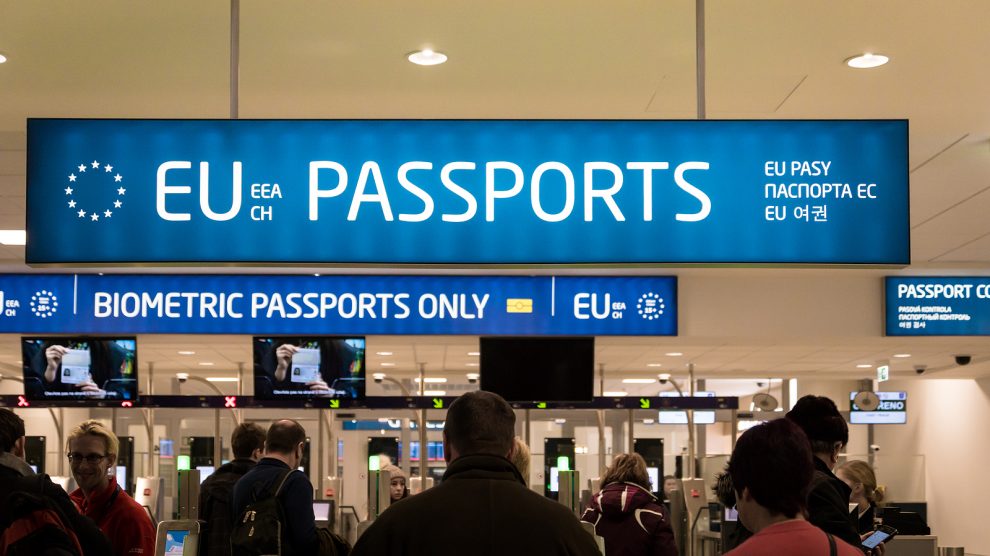Bulgaria’s and Romania’s failure to become members of the Schengen border-free travel zone will embolden anti-EU populists in both countries.
Austria on December 8 vetoed Bulgaria’s and Romania’s membership of the European Union’s border-free Schengen area. The Netherlands also voted “no”, although it claimed to be vetoing only Bulgaria, not Romania.
Schengen accession needs unanimous backing from all the area’s members – 22 EU nations as well as Liechtenstein, Iceland, Norway and Switzerland.
- EU gives Romanian justice system clean bill of health, but Schengen prospects dim
- Let us in
- ‘In Romania and Bulgaria, there is this mentality that trains are to be avoided’
The ostensible motives behind Vienna’s stance look dubious. “It is wrong that a system that does not work properly in many places would get expanded at this point,” said Austrian Interior Minister Gerhard Karner.
And yet Austria was happy to give Croatia, which only became an EU member in 2013, six years after Bulgaria and Romania, the green light to join the Schengen area from January 1, 2023.
The European Commission has long made it clear that all three countries meet the technical criteria required for membership, making Austria’s veto purely political. “A decision that willingly ignores the fact that the conditions for membership have been met,” said Romania’s Interior Minister Lucian Bode.
Emboldened populists
Beyond the often intolerable queues at Bulgaria’s and Romania’s borders and airports, there are likely to be political consequences for both countries.
Bulgaria will hold yet another parliamentary election early next year, Romania holds parliamentary elections in 2024. If both countries continue to remain outside the Schengen area, populist, anti-EU parties will be emboldened. Campaign slogans denouncing an evil Brussels that views Bulgaria and Romania as backwards colonies unworthy of full EU rights will all but write themselves.
One populist party, the Alliance for Romanian Unity (AUR), has already called for a boycott of Austrian firms and goods.
“It’s a gift for Putin,” said Marcel Ciolacu, Romania’s deputy prime minister.
That Bulgaria and Romania came up against such a stubborn and irrational Austria could be forgiven as misfortune. That neither has emerged with a clear route forwards is less forgivable.
There is no agreed timetable for future negotiations, no list of conditions that must be met. Austria did not say, “no, not until X, Y, Z is done”. It simply said “no”.
As a result, Romanian politicians such as Mr Ciolacu and Mr Bode – who for months had been telling Romanians Schengen was a done deal – will find themselves under pressure to resign. The temporary nature of Bulgaria’s current administration (the country has been without a permanent government for most of the year, and Schengen entry is not seen as a priority) will spare its leaders that fate.

No clear path forwards
Nevertheless, what will concern Bulgarians and Romanians most is that there is no guarantee Schengen expansion will be back on the EU’s agenda any time soon. Yesterday’s vote happened only because Czechia, which holds the EU’s agenda-setting six-month rotating presidency, made it a priority.
In January it will be the turn of Sweden, which was itself reticent about Schengen enlargement until just a week or so ago, to take over the presidency. It is unlikely to want to bring the matter back to the table for discussion.
Spain, which takes on the presidency for the second half of 2023, offers more hope, not least as it is home to large Romanian and Bulgarian diasporas.
But even if Spain were to revisit the topic of Schengen expansion, any vote would still need unanimity. Austria could still wield its veto. It may require a change of government in Vienna (not due to hold a federal election until September 2024) for Bulgaria and Romania to finally get their wish.
Unlike many news and information platforms, Emerging Europe is free to read, and always will be. There is no paywall here. We are independent, not affiliated with nor representing any political party or business organisation. We want the very best for emerging Europe, nothing more, nothing less. Your support will help us continue to spread the word about this amazing region.
You can contribute here. Thank you.


